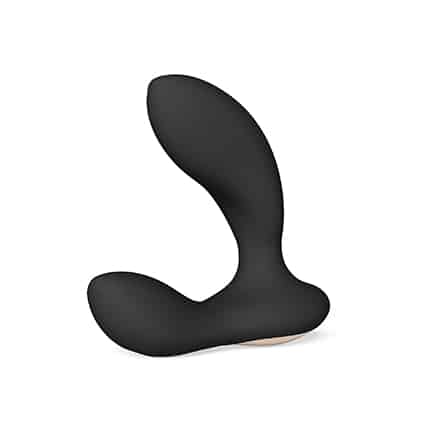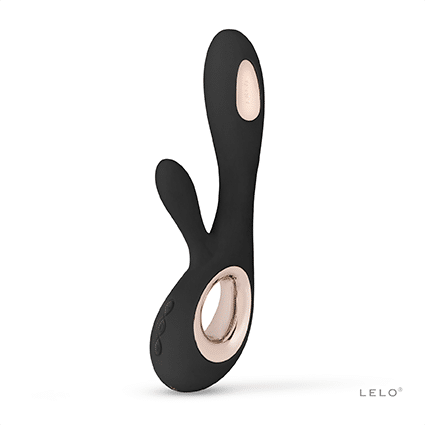Fact: stress isn’t good for you. And while stress has been around since the conception of humans, it feels as though the ability to become stressed has only increased over time. From your Twitter feed and Instagram addiction, to your morning commute, the stresses of modern day life just seem to compound.
This, in turn, has negative effects on various aspects of your life… including the sex that you’re having.
Increased levels of stress can diminish your immune system, making you more susceptible to illness. It also has a way of keeping you up at night, as your mind wanders endlessly about bits and pieces that are plaguing you. Feeling tired? Another day at the office feeling cranky and even more stressed.
It’s during these times that your body and mind focuses mainly on survival. Your heart rate goes up when you’re under stress, and your body works hard to maintain its optimal functioning. And that’s when less essential aspects, like sex, take a back seat.
With that, let’s take a look at the way in which stress affects your sex life…
Stress and Your Hormones
When you experience stress, you’ll undergo a series of hormonal changes. One change that has the biggest effect, is the fact that your body produces higher levels of cortisol which has a negative impact on your libido, as well as your ability to climax.
For women specifically, extreme stress can throw off your menstrual cycle, which plays all kinds of havoc when it comes to getting in the mood for lovemaking.
For men who are experiencing stress, the hormone LHRH (Luteinizing Hormone Releasing Hormone) is released. LHRH causes the production of the hormone luteinizing to drop, which then affects the production of testosterone. Then, there’s a decreased release of the hormone, FSH (Follicle-Stimulating Hormone), which assists the body in producing sperm.
For women, the levels of LH (Luteinizing Hormone) are considerably lower during stressful periods, which can have a negative impact on their sex life. The hormones FSH, prolactin, estrogen, and progesterone are also disrupted during stress, and thus can affect levels of arousal. Additionally, stress can affect a woman’s ovulation cycle by creating an environment where fertilization is more difficult.
Then, for many men and women, sex is an emotional experience, and the brain acts as a powerful aphrodisiac. That’s why it’s easy for some to associate negative connotations when it comes to enjoying sex, which can lead to stress responses that trigger automatic physical reactions.
Stress and Body Image
Stress has a way of interfering with your metabolism, which in turn, can affect your weight. Fluctuations in weight, for some, can directly impact the way in which they feel about their body.
For example, when someone isn’t feeling their best or are not happy with the way in which they look, they may not feel attractive or confident enough to be intimate with their partner.
Destructive Stress Relievers and Sex
There are a number of ways in which to deal with stress, but if you decide that alcohol is your best vice, this too can have a negative impact on your sex life. Excessive alcohol can have adverse effects to your arousal — from managing to get an erection to producing vaginal lubrication for comfortable lovemaking.
Stress and Erectile Dysfunction
Did you know that ED (erectile dysfunction) is very often caused by psychological factors, like stress and anxiety?
For example, one way in which an erection occurs, is when the brain signals the body to produce a physical response. Stress can affect the way in which this message is sent, allowing less blood to flow to the penis. This, in turn, can cause a man to feel self-conscious or embarrassed, which can further bring about stress and worsen their ED.
In fact, the main reason that middle-aged men experience ED, is because of personal (like relationship problems) and professional stress.
The good news for those who experience ED due to stress, is that there are a number of constructive ways to deal with the issue. When positive channels are used to diminish stress, ED will naturally sort itself out.
A Woman’s Sex Life and Stress: A Scientific Study
In 2013, Lisa Dawn Hamilton, PhD, and Cindy Meston, PhD, conducted a study on chronic stress and sexual functioning in women. This study was done by creating two control groups, one with women who experienced high chronic stress, and the other with women who experience average chronic stress.
A saliva sample was taken from each participant who then watched an erotic film whilst having their genital and psychological arousal levels measured.
The findings? Women who were in the high chronic stress level group were found to have less genital arousal and higher levels of cortisol. They too felt more distracted during the erotic film. This physical and psychological response in women who experienced high chronic stress showed that stress really does have a big impact on one’s ability to feel sexually aroused.
Constructive Ways to Eliminate Stress and Improve Your Sex Life
Stress is, quite literally, a boner killer. But for many, there are several ways in which stress can be managed. In fact, simply recognising stress patterns and causes can have a positive impact.
So, here are a few ways that you can constructively eliminate stress and improve the quality of your sex life.
Move it!
Exercise and other physical activity stimulates the production of endorphins—chemicals in the brain that act as natural painkillers—and also improve the ability to sleep, which in turn reduces stress. Getting your sweat on will also boost your body’s circulation activity, which has very positive effects for the male and female sexual response.
The Importance of ‘Down Time’
It may seem as though getting into bed with a partner or having a lie down on the sofa, phone in hand, is a relaxing activity. In actuality, our smartphones are a big cause of stress today. It not only encourages the obsession with social media and various apps, but also has a way of reminding you of the things that you still need to achieve. Think work emails and calendar reminders. These things keep us from focusing on what’s right in front of us.
Another way to reduce stress would be to reclaim your house or apartment as a refuge from outside stressors. Set boundaries when it comes to ‘down time’, and the time you spend on other people or tasks. This is especially important in the bedroom.
Try turning off your smartphone, or placing it in another room when it comes to bedtime. You’ll find that when you leave these distractions outside, you’ll begin to recognize what your bedroom is actually for… rest, relaxation, and intimacy.
Take time to be intimate with your partner, whether it is enjoying sex or merely being close and feeling appreciated. Allow yourselves a short amount of time to simply be close in a space together without distractions, and you’ll be surprised at how quickly this can reignite a spark of passion and get your mind off your worries.
Intimacy Doesn’t Have to Include Sex or Climax
If stress is negatively impacting your sex drive (or even if it isn’t), remember that the basic notion of sex (P-in-V penetrative sex) and climaxing shouldn’t be the end goal.
Many other sexual activities in itself can induce feelings of relaxation and comfort. For example, a sensual massage or mutual masturbation. These kinds of activities may help relieve stress, take your mind off of things for a while, and hopefully get you back in the groove.
So, if you feel as though stress has got you by the balls, try to identify the pattern, and work on relieving your stress. After all, everyone deserves good sex!







